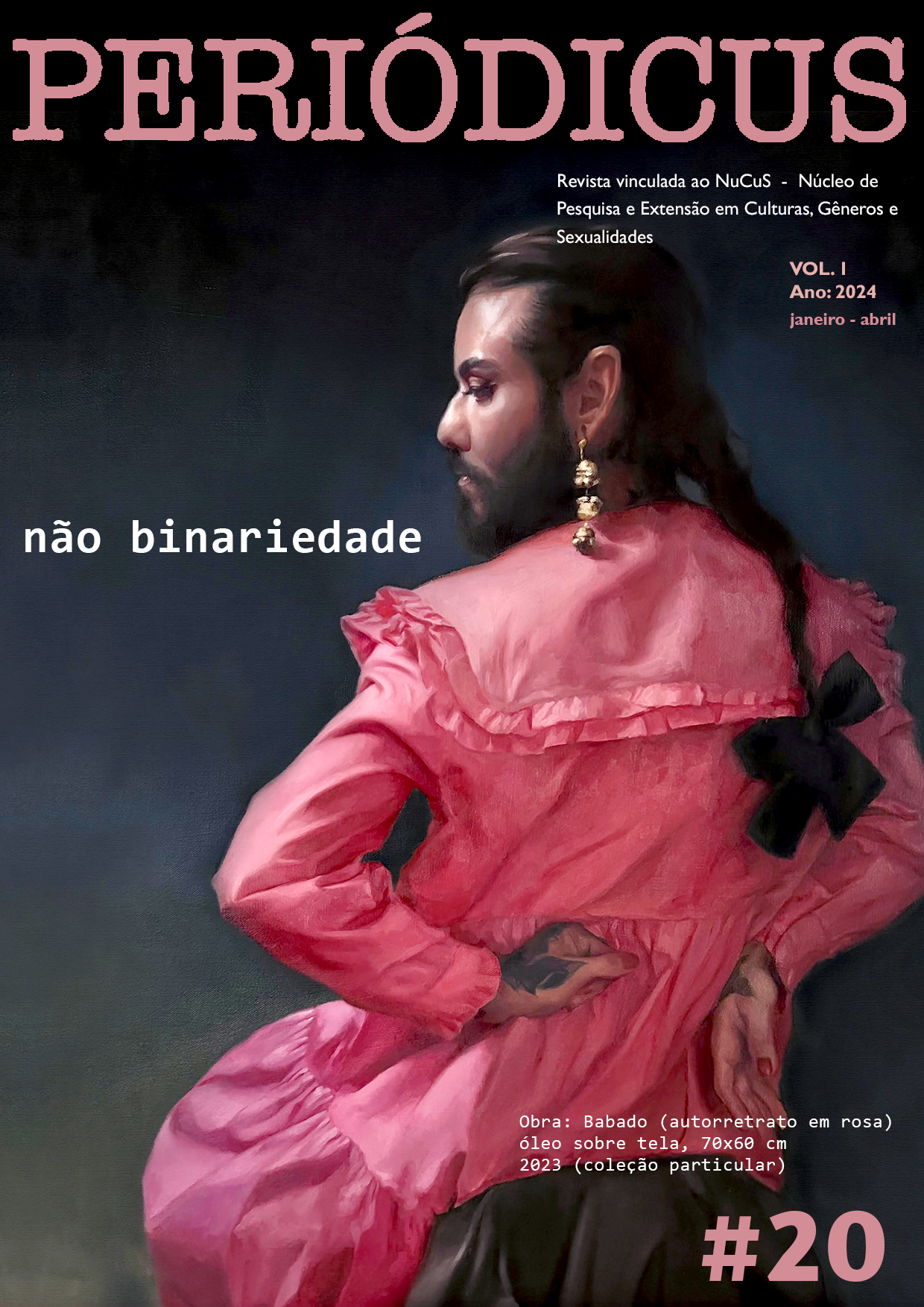Butch ethics
for an ethics outside the CIStem
DOI:
https://doi.org/10.9771/peri.v1i20.54854Abstract
This article presents a theoretical articulation aimed at constructing a notion of what a Butch Ethics could potentially be, capable of challenging historically established norms regarding who can become a lesbian and/or a butch, while recognizing the plurality of experiences, lived realities, and (dis)identifications within lesbianities and butchness. From a critical perspective, the study highlights the importance of breaking away from cisgender assumptions as the basis for defining these (dis)identities. By establishing this Butch Ethics, the article intends to interrogate the place of lesbianities and butchness in the construction of other (im)possible worlds. Through theoretical discussions encompassing ethics, in their epistemological and ontological dimensions, the article also aims to bring to the surface identity traps and, simultaneously, to (re)locate the position of subjects in the challenges of the present, starting from the reclaiming of the non-binary butch category.
Downloads
Downloads
Published
How to Cite
Issue
Section
License
Copyright (c) 2024 Julianna Paz Japiassu Motter

This work is licensed under a Creative Commons Attribution-NonCommercial 4.0 International License.
Autores que publicam nesta revista concordam com os seguintes termos:
Autores mantêm os direitos autorais e concedem à revista o direito de primeira publicação, com o trabalho simultaneamente licenciado sob Licença Creative Commons Attribution Noncommercial que permite o compartilhamento do trabalho com reconhecimento da autoria e publicação inicial nesta revista, sendo vedado o uso com fins comerciais.
Autores têm autorização para assumir contratos adicionais separadamente, para distribuição não-exclusiva da versão do trabalho publicada nesta revista (ex.: publicar em repositório institucional ou como capítulo de livro), com reconhecimento de autoria e publicação inicial nesta revista.
Autores têm permissão e são estimulados a publicar e distribuir seu trabalho online (ex.: em repositórios institucionais ou na sua página pessoal) a qualquer ponto antes ou durante o processo editorial, já que isso pode gerar alterações produtivas, bem como aumentar o impacto e a citação do trabalho publicado (Veja O Efeito do Acesso Livre).







